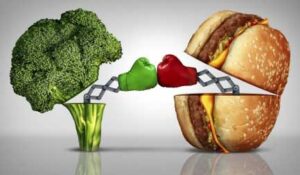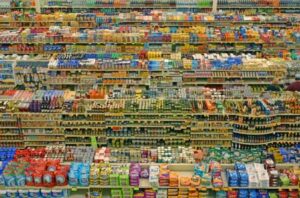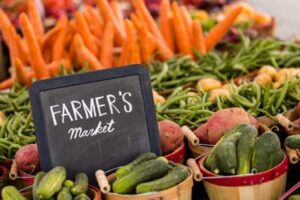Holly Whitelaw – Founder of Gleaning Cornwall
Through our work we have learnt a great deal about the stresses facing the hard-working people that feed us and how difficult it is to make fruit and veg pay, unless at scale! Indeed, many farmers face extreme financial hardship, some having to turn to food banks themselves! They have often been portrayed as the baddy but are facing an increasingly complex and difficult situation.
Over the years the percentage of our income we spend on food has reduced. In 1974 we spent 24% of our household income on food, compared with 11% today. Also, over recent times, the amount we spend on fresh fruit, veg, dairy and meat has reduced, while our expenditure on processed foods has increased. In 1980 we bought 58% food fresh & 26% on convenience food. In 2024 we bought 28% fresh and 44% convenience / processed food! 1 in 5 people in the UK now get over 80% of their calories from processed food!

The rise of the supermarkets and increase in processed foods has meant there are more middle men’ between the primary producers and us consumers, all who need paying! This and the availability of cheap imports, has driven down profits to a level that has squeezed out many of our small and medium farmers. Now only large-scale vegetable and fruit production or community supported agriculture is financially viable.
We are lucky in Cornwall to have such good growing conditions and a number of local, large-scale vegetable producers, such as Riviera, TH Clements, SEF and RL Whear, rent out other farmers fields to produce veg for large buyers. They have the contacts, ability to cope with the large contracts, the machinery and workforce. The land owners often supplement this income with meet or dairy production, which in turn aids healthy soils, fertility and carbon sequestration.
The workforce required to harvest vegetables has been difficult for many to source as locals are not consistently up for working the hours, pace and as hard as foreign workers are. Foreign nationals though need support with paperwork and housing, which most smaller producers can’t manage.
On top of this, farmers are at the forefront of climate change! We have noticed long periods of drought and wet weather making it impossible to glean, grow, prepare ground or indeed plant or harvest crops.
Also, Brexit brought about a complete restructuring of the government subsidies available to land owners. We used to pay landowners Basic Farm Payments, which paid rates per acre, no matter what was done with the land. Since 2022 this has been gradually phased out to be replaced by the Sustainable Farming Incentive payments, which are far more complex, have taken a long time to come through and are not paying as much to many. The transition to more sustainable farming practices is vital however, following the wartime and agrochemical push to produce more, faster and bigger and the UK leads the world in this. For farmers though this transition is costly, complex, requires much learning, trial and error, transitional time and different, expensive seeds and equipment. For many this, low prices and the reduction of tax incentives has pushed many to demonstrate and or give up entirely.
For the first time in many years our fresh food isn’t subsidised by government. Maintaining hedgerows, reducing agrochemicals, not ploughing, planting cover crops and herbal leys though is. This means that in order to minimise increases in food costs we need to reverse that trend of paying lots of middle men to process, transport, package, market and sell us food. We need to buy as direct as possible, buy fresh and what’s in season and grown locally. That way we and our producers will be happy and healthier.
You can find some local producers and suppliers here.
We need less of this:

and more of this:


Interestingly, some farmers have found that it makes more financial sense to be paid to rewild their land and there is enormous pressure on land for housing and renewable energy production, particularly in Cornwall, as our desperate housing crisis is exasperating the lost-of-living crisis here and we are so sunny and windy and therefore suitable for renewables! This means, along with climate and political stresses on food supplies, we need to ensure we not only support farmers to transition to more sustainable farming practices but also ensure we produce enough and enough variety of food to sustain us!

